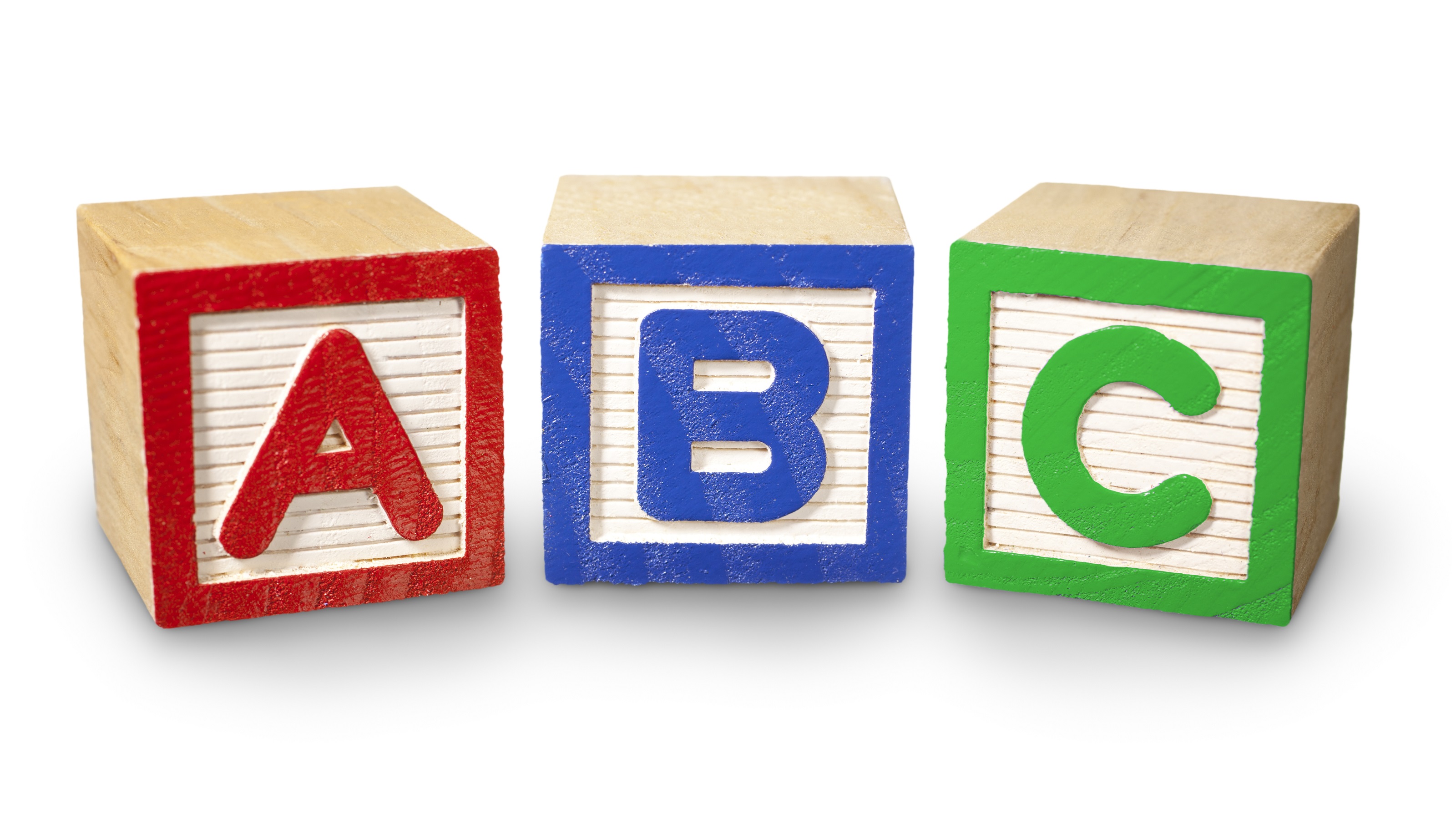The Three Basic Components of a Good Estate Plan
Getting your estate in order so everyone knows what you want when the time comes can save your loved ones confusion and stress.


Profit and prosper with the best of Kiplinger's advice on investing, taxes, retirement, personal finance and much more. Delivered daily. Enter your email in the box and click Sign Me Up.
You are now subscribed
Your newsletter sign-up was successful
Want to add more newsletters?

Delivered daily
Kiplinger Today
Profit and prosper with the best of Kiplinger's advice on investing, taxes, retirement, personal finance and much more delivered daily. Smart money moves start here.

Sent five days a week
Kiplinger A Step Ahead
Get practical help to make better financial decisions in your everyday life, from spending to savings on top deals.

Delivered daily
Kiplinger Closing Bell
Get today's biggest financial and investing headlines delivered to your inbox every day the U.S. stock market is open.

Sent twice a week
Kiplinger Adviser Intel
Financial pros across the country share best practices and fresh tactics to preserve and grow your wealth.

Delivered weekly
Kiplinger Tax Tips
Trim your federal and state tax bills with practical tax-planning and tax-cutting strategies.

Sent twice a week
Kiplinger Retirement Tips
Your twice-a-week guide to planning and enjoying a financially secure and richly rewarding retirement

Sent bimonthly.
Kiplinger Adviser Angle
Insights for advisers, wealth managers and other financial professionals.

Sent twice a week
Kiplinger Investing Weekly
Your twice-a-week roundup of promising stocks, funds, companies and industries you should consider, ones you should avoid, and why.

Sent weekly for six weeks
Kiplinger Invest for Retirement
Your step-by-step six-part series on how to invest for retirement, from devising a successful strategy to exactly which investments to choose.
We spend most of our lives planning for the future, and it starts from a very young age. You probably remember being asked what you wanted to be when you grew up. And despite how many times that answer might have changed, you most likely spent the first 20 years of your life planning, preparing and working for that dream job. But what happens when it’s time to retire? That’s a question we don’t focus on nearly as much.
If you’ve been in the workforce, you know how important it is to put money away for retirement. Almost all financial advisers will tell you to start investing, whether that be through an employer-sponsored 401(k) account or a Roth IRA.
But simply making sure you have enough money to last the rest of your life isn’t enough. If you want to be in control of what happens to the empire you’ve spent your life building, then you need to start planning your estate.
From just $107.88 $24.99 for Kiplinger Personal Finance
Become a smarter, better informed investor. Subscribe from just $107.88 $24.99, plus get up to 4 Special Issues

Sign up for Kiplinger’s Free Newsletters
Profit and prosper with the best of expert advice on investing, taxes, retirement, personal finance and more - straight to your e-mail.
Profit and prosper with the best of expert advice - straight to your e-mail.
As you begin to plan your estate, it’s important to know the three basic components of a good estate plan.
A personal instruction manual
First, you need to have a last will and testament. Think of your will as a personal instruction manual that details what happens to your stuff after you die. It’s important to list who gets what, ensuring that your belongings go to the right people. If you have kids or pets, you can decide who will take care of them and include it in your will.
Also be sure to designate an executor. This person will be in charge of making sure your wishes are followed, so be sure to choose someone you trust.
Next, you’ll want to appoint a durable power of attorney for assets. This person will function as a guardian over your finances and your things. They’ll be responsible for making all decisions regarding your money and assets any time you are not able. Having a durable power of attorney for assets is a great safety net to make sure your finances stay in check.
The final component to a solid estate plan is designating a health care power of attorney. This is similar to a power of attorney for assets, except this person will be in charge of making medical decisions for you if you are not able.
Minimizing taxes
The next step you’ll want to take when planning your estate is figuring out how to minimize income and estate taxes. One way to lower estate taxes is by giving gifts while you’re still alive. For 2024, you can give up to $18,000 per person of money or assets without triggering gift taxes. This can be a great way to help others, while potentially reducing what could be taxed later.
A more advanced way to plan your estate is by setting up a trust. Trusts are like magic vaults that hold your assets, allowing you to control how they are distributed. Setting up trusts can help minimize estate taxes and provide for specific needs, like education or health care expenses for your loved ones. A great trust can minimize taxes, reduce stress when a loved one passes away and expedite asset transfers while potentially avoiding probate.
According to Lisa Hostetler Brown, managing attorney for LawyerLisa, “Having the right documents in place is only half the battle. Every plan must also be properly implemented. For example, when a trust is used as part of an estate plan, it is critical that the trust be properly funded to achieve the desired result.”
Consider tax-advantaged accounts
Another option you have is to put money in accounts that come with tax benefits. Retirement accounts, like IRAs and 401(k)s allow your money to grow tax-deferred. This means you don’t pay taxes on the gains until you withdraw your funds. Tax-free accounts like Roth IRAs allow your money to grow tax-deferred but offer tax-free distributions as long as all of the rules, such as allowing the account to age for five years and waiting until at least age 59½ to make withdrawals, are followed.
Be sure to hire a skilled estate attorney to draft and review your documents. Once you pass away, you’ll need someone representing your wishes and making sure everything gets done according to your plan. Hostetler Brown asserts, “Discount estate planners or online ‘lawyer-assisted’ document-generating websites usually do not address all of the issues that may come up. If you don't know what could go wrong or what you are leaving out, how can you fix it?”
As you continue planning your estate, you want to make sure your assets are passed on to your heirs as efficiently as possible. You’ll first want to start by designating beneficiaries on all of your accounts and insurance policies. Naming beneficiaries ensures your assets go directly to the people you choose, allowing your loved ones to skip the lengthy, and sometimes costly, probate process. If done correctly, the entire process can be kept private instead of the information being advertised to the public.
Make sure to adjust the plan as your life changes
Once you’ve got your plans in place, it’s important to review them regularly. Life changes, and you’ll want to make sure your estate plan reflects that. Your plan should be reviewed and updated any time you experience significant life events, such as getting married, having kids, the death of a loved one or buying property.
Talking with your family about your estate plan may sound like something you’d rather avoid, but it’s important that you don’t avoid it. Letting them know your wishes can help avoid confusion and conflict once you’re gone. Plus, it gives you a chance to share your values and wisdom with those you care about.
Estate planning doesn’t have to be a complicated process. Breaking it down and implementing smart strategies ensure your assets are protected, taxes are minimized, and your loved ones are taken care of. Think of it as setting up a road map for the future to ensure that your legacy is remembered and celebrated for generations to come.
Related Content
- Is Inflation a Big Retirement Worry? How to Protect Savings
- IRS Quietly Changed the Rules on Your Children’s Inheritance
- Eight Types of Trusts for Owners of High-Net-Worth Estates
- 14 Rapid-Fire Estate Planning Tips
- Estate Planning Checklist: Five Tasks to Prioritize
Profit and prosper with the best of Kiplinger's advice on investing, taxes, retirement, personal finance and much more. Delivered daily. Enter your email in the box and click Sign Me Up.

JB Beckett has been an adviser for 24 years and is the founder of Beckett Financial Group, a specialized financial firm that helps individuals and businesses in the Retirement Red Zone build Tax-smart Retirement Income Blueprints allowing them the freedom to overcome their concerns about inflation, market volatility and taxes to retire sooner.
-
 Quiz: Do You Know How to Avoid the "Medigap Trap?"
Quiz: Do You Know How to Avoid the "Medigap Trap?"Quiz Test your basic knowledge of the "Medigap Trap" in our quick quiz.
-
 5 Top Tax-Efficient Mutual Funds for Smarter Investing
5 Top Tax-Efficient Mutual Funds for Smarter InvestingMutual funds are many things, but "tax-friendly" usually isn't one of them. These are the exceptions.
-
 AI Sparks Existential Crisis for Software Stocks
AI Sparks Existential Crisis for Software StocksThe Kiplinger Letter Fears that SaaS subscription software could be rendered obsolete by artificial intelligence make investors jittery.
-
 Social Security Break-Even Math Is Helpful, But Don't Let It Dictate When You'll File
Social Security Break-Even Math Is Helpful, But Don't Let It Dictate When You'll FileYour Social Security break-even age tells you how long you'd need to live for delaying to pay off, but shouldn't be the sole basis for deciding when to claim.
-
 I'm an Opportunity Zone Pro: This Is How to Deliver Roth-Like Tax-Free Growth (Without Contribution Limits)
I'm an Opportunity Zone Pro: This Is How to Deliver Roth-Like Tax-Free Growth (Without Contribution Limits)Investors who combine Roth IRAs, the gold standard of tax-free savings, with qualified opportunity funds could enjoy decades of tax-free growth.
-
 One of the Most Powerful Wealth-Building Moves a Woman Can Make: A Midcareer Pivot
One of the Most Powerful Wealth-Building Moves a Woman Can Make: A Midcareer PivotIf it feels like you can't sustain what you're doing for the next 20 years, it's time for an honest look at what's draining you and what energizes you.
-
 I'm a Wealth Adviser Obsessed With Mahjong: Here Are 8 Ways It Can Teach Us How to Manage Our Money
I'm a Wealth Adviser Obsessed With Mahjong: Here Are 8 Ways It Can Teach Us How to Manage Our MoneyThis increasingly popular Chinese game can teach us not only how to help manage our money but also how important it is to connect with other people.
-
 Looking for a Financial Book That Won't Put Your Young Adult to Sleep? This One Makes 'Cents'
Looking for a Financial Book That Won't Put Your Young Adult to Sleep? This One Makes 'Cents'"Wealth Your Way" by Cosmo DeStefano offers a highly accessible guide for young adults and their parents on building wealth through simple, consistent habits.
-
 Global Uncertainty Has Investors Running Scared: This Is How Advisers Can Reassure Them
Global Uncertainty Has Investors Running Scared: This Is How Advisers Can Reassure ThemHow can advisers reassure clients nervous about their plans in an increasingly complex and rapidly changing world? This conversational framework provides the key.
-
 I'm a Real Estate Investing Pro: This Is How to Use 1031 Exchanges to Scale Up Your Real Estate Empire
I'm a Real Estate Investing Pro: This Is How to Use 1031 Exchanges to Scale Up Your Real Estate EmpireSmall rental properties can be excellent investments, but you can use 1031 exchanges to transition to commercial real estate for bigger wealth-building.
-
 Should You Jump on the Roth Conversion Bandwagon? A Financial Adviser Weighs In
Should You Jump on the Roth Conversion Bandwagon? A Financial Adviser Weighs InRoth conversions are all the rage, but what works well for one household can cause financial strain for another. This is what you should consider before moving ahead.